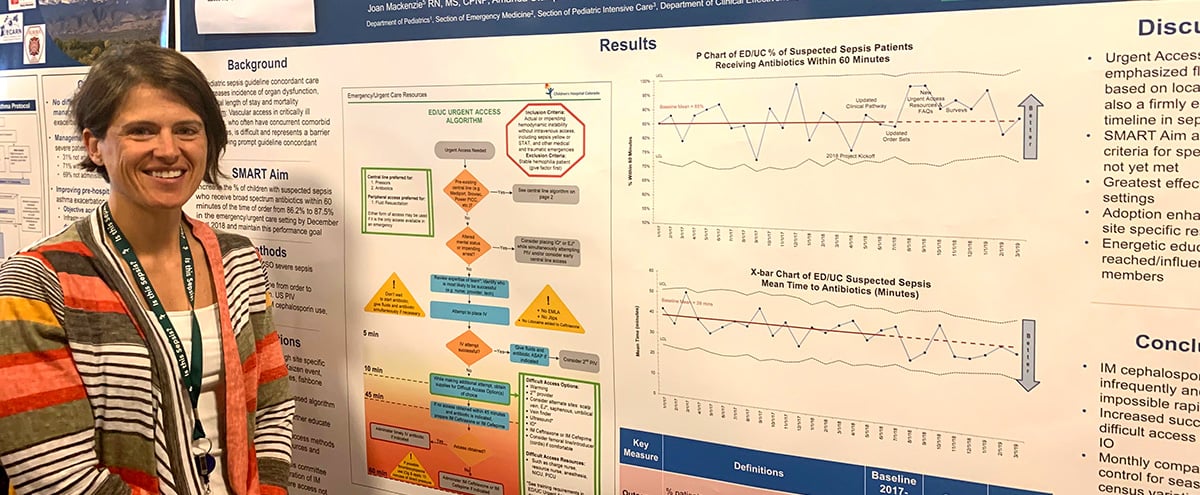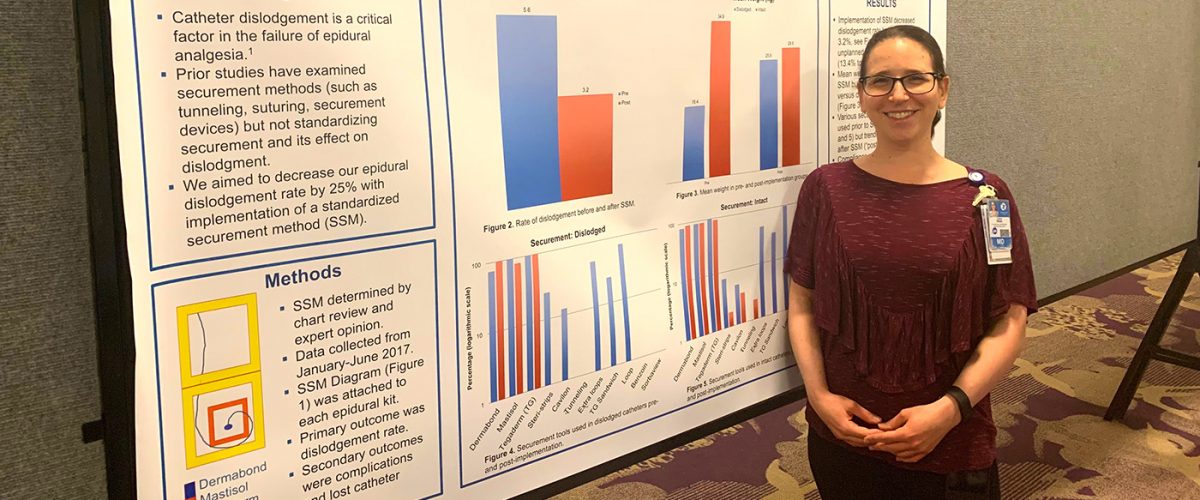An array of innovative ideas – from devising a way to speed medications to sepsis patients to creating a standardized process that better secures epidural catheters to children – were on display at the Colorado Clinical and Translational Sciences Institute (CCTSI) biannual pediatric poster session.
The CCTSI collaborated with the Research Institute of Children’s Hospital Colorado and the Department of Pediatrics in the CU School of Medicine on the May 17 event. The informal session highlighted current pediatric research of fellows and faculty.
With over 100 posters prepared, many different pediatric topics were covered, including basic sciences, psychiatry and patient education. There were two groups of presenters, fellows and faculty, and the fellows were judged by a panel and had the opportunity to win recognition and a gift card.
Sharing research
“The poster session is a great opportunity for fellows, faculty, residents and nurses to share their scientific ideas and strengthen our community of pediatric researchers,” said Ronald Sokol, MD, CCTSI director. “It is also an important aspect of the CCTSI’s mission to foster the next generation of biomedical research leaders.”
 Emily Greenwald, MD, received an honorable mention for first-year fellows for her study into pediatric sepsis.
Emily Greenwald, MD, received an honorable mention for first-year fellows for her study into pediatric sepsis.
“This event is a wonderful opportunity for researchers to see their peers’ incredible work,” said Janine Higgins, PhD, professor of pediatrics-endocrinology. “It is also a great chance for fellows to practice explaining their research to judges, as they will certainly do much more of this in the future.”
Improving outcomes in pediatric sepsis
Emily Greenwald, MD, a pediatric emergency medicine fellow, studies pediatric sepsis. She won honorable mention for first-year fellows.
“When it comes to sepsis, we can really affect mortality,” she said. “The goal of our study was to improve the amount of time it takes to get medication to sepsis patients, which has been shown to improve patient outcomes.”
Greenwald and her team followed sepsis patients from start to finish, looking for problems in the process. They found a subset of the patients who challenge routine methods to obtain vascular access. So a quality improvement initiative took place to develop an algorithm that can help care teams obtain vascular access in alternative ways to give medications more promptly.
“After rolling out the urgent access algorithm across several Children’s campuses, we’ve seen improvements in the amount of time it takes to get vascular access,” she said. “These improvements allow us to deliver the best care to children with suspected sepsis who also happen to have very difficult vascular access.”
Lowering pediatric epidural dislodging rates
Leah Webb, MD, a fellow in pediatric anesthesiology, shared her research on pediatric epidural catheter dislodging rates.
“Epidurals are frequently used for anesthesia,” said Webb. “It is administered through the placement of a catheter, which is susceptible to falling out. We really have one shot to place it correctly in a child. If it dislodges, it’s considered a failure.”
There are many different techniques to placing an epidural catheter. Webb designed a study to standardize the securement method. Through education and simplification, she found that the failure rate decreased by 43 percent.
“I’m excited to see this success and share it with other people,” she said. “This competition is a great opportunity to do just that.”




